
















 Dr Rejaul Karim Barbhuiya Assistant Professor, Central Institute of Educational Technology (CIET), NCERT, Ministry of Education, Government of India
Dr Rejaul Karim Barbhuiya Assistant Professor, Central Institute of Educational Technology (CIET), NCERT, Ministry of Education, Government of India

Times have changed. Today is not the time of memorising and copying. Students must be enabled to think for themselves and articulate their thoughts well. They should be able to participate meaningfully and confidently in day-to-day activities – whether it be buying groceries, registering a formal complaint, or voicing opinions freely. A problem-solving attitude, critical outlook, scientific temperament and creativity are non-negotiable skills in the 21st century.
The National Education Policy 2020 talks about technology playing an important role in improving the learning outcomes and learning experiences of children. With the growing penetration of the internet and the easy availability of smartphones and other electronic devices, both parents and teachers can participate in and supervise children's learning through various online apps, quizzes, videos, e-books, educational games and so on. In a nutshell, digital learning has the potential to impact on what children learn and how they learn.
Aakash Chowkase
In the post-Covid world, more than ever before, the parents' role is being seen as pivotal to children's growth and learning. The National Education Policy 2020 released by the Government of India, recognises parents as equal partners in their children's education. At home, it is important for caregivers to create a safe, engaging and positive environment for children to learn, apply themselves and have fun. Parents can also engage actively with children around their homework, curricular and co-curricular activities and projects.
NEP 2020 acknowledges the multilingual reality of India and asserts that the bridge of home language or other familiar language is absolutely crucial for children in the foundational years, not only to help them to comprehend basic subjects, but also to acquire additional languages like English. Thus, the needs-based and systematic use of learners' home languages should be encouraged in the classrooms, along with an anxiety-free, purpose-oriented and input-rich environment.
Aparna Dixit Head of Content and Research, Centre for Learning Resources
 Ms Sonia Kumari Assistant Professor, Kamala Nehru College, University of Delhi
Dr
Post-doctoral Research Fellow, University of California, Berkeley, USA, Department of Psychology
Ms Sonia Kumari Assistant Professor, Kamala Nehru College, University of Delhi
Dr
Post-doctoral Research Fellow, University of California, Berkeley, USA, Department of Psychology
Thanks to globalization and the emergence of technologies, international boundaries have become blurred. English, to a high degree, is a commonly understood medium of communication. It is one of the key tools that students need to perform well today and in the future. According to a global study, while recruiting, 98.5% of employers implicitly or explicitly assess a candidate’s English communication skills! There is therefore a growing demand for English communication skills, because it empowers people and enables them to lead a better life.
Functional communication skills, involving aspects of LSRW (listening, speaking, reading and writing), are central to knowledge acquisition, children’s intellectual, social and emotional growth, and life-long learning. Specifically, strong listening and speaking skills are not only vital in the overall language learning process, but also lead to better reading and writing skills. Yet, these foundational skills tend to be neglected in schools due to the high pupil-teacher ratio, lack of oral language-focused assessment, and most importantly, a lack of systematic and allocated practice time for these skills within the classroom.
Aligned with NEP 2020, NCERT learning outcomes and standardized to CEFR (Common European Framework for Reference) levels, Uolo Speak is a hybrid learning program that focuses on building, applying, practising, and assessing these core language skills.
First, through this book as one of the components of the program, the English classroom becomes an avenue to hone functional speaking skills in real time. The teacher-led activities give learners the opportunity to undertake high-quality, level-appropriate, and experiential activities that help to build confidence and expression in English.
Second, the mobile interface of the product ensures consistent practice of functional LSRW skills. These exercises go beyond traditional question types and employ cutting-edge technology to enable learning and generate instant feedback. For instance, learners practise speaking with Al (artificial intelligence), as if conversing with a real person!
Third, Uolo Speak assessment can be conducted by the school in sync with their academic calendars. The assessment is evaluated by Uolo’s English specialists to give performance report and feedback.
Finally, the reporting methodology used in the above three program components, generates a skill growth chart against CEFR levels for each learner, class and the school. Educators can then clearly identify learners who are reaching, meeting, and exceeding the level requirements, and support them accordingly.
Uolo Speak is a powerful, exciting, and unique experience for learners and teachers. It represents a real life and results-oriented approach to develop essential 21st century functional English skills.
Wishing all teachers, parents, and learners lots of fun and joyful experiences as you embark upon this exciting journey with Uolo Speak.
Dr Laraine O'Connell
D. Litt., English, North West University, South Africa
I am a veteran English teacher and lecturer, with a great love for English and for teaching. I have taught English and trained teachers over many years. I live in South Africa and it is a wonderful experience working with a company promoting the learning of English in India.

Walkthrough
Each chapter is divided into three sections - Part A, E-Speak, and Part B.



Part A is period 1. It has one text and one classroom activity.
E-Speak section has two mobile app projects. These projects can be done at home or in school.
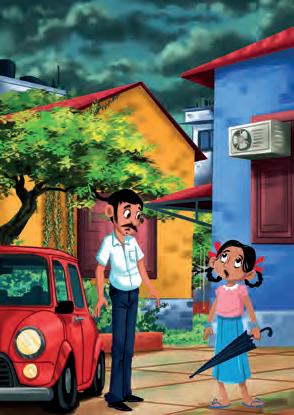
Part B is period 2. It has one fun activity and one presentation task.
Chapter
Talking
Animation video
Text
Keywords
iv


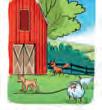
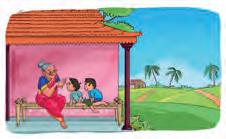
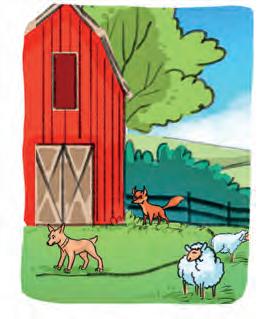





1
2
3
4
Fun with Riddles Asking riddles
Comprehend and solve riddles
Ask riddles with appropriate body language and expression
All about Feelings Sharing feelings
How to Do? Step by step instructions
What Happens Next? Making predictions
5 Hello, Attention Please! Making announcements
6
About People Talking about self and others
Share some details about events
Share personal feelings associated with events
Follow instructions involving mutiple steps
Give clear instructions in order to get something done
Interpret direct and indirect details in a story
Make predictions about future events
Identify key details from an announcement
Make short announcements
Tell important details about a person
Daily Conversations Conversations in daily life situations
Ask questions politely during a conversation
Share important aspects about oneself 7
Let’s Imagine Talking about imagination
9
Slogans for Advertisements Advertising an item

Enjoy imaginative poems and stories
Share responses and feelings during a conversation 8
Share imagination and creative thoughts in short
Create short and catchy slogans/ taglines
Present an advertisement to pitch for an item
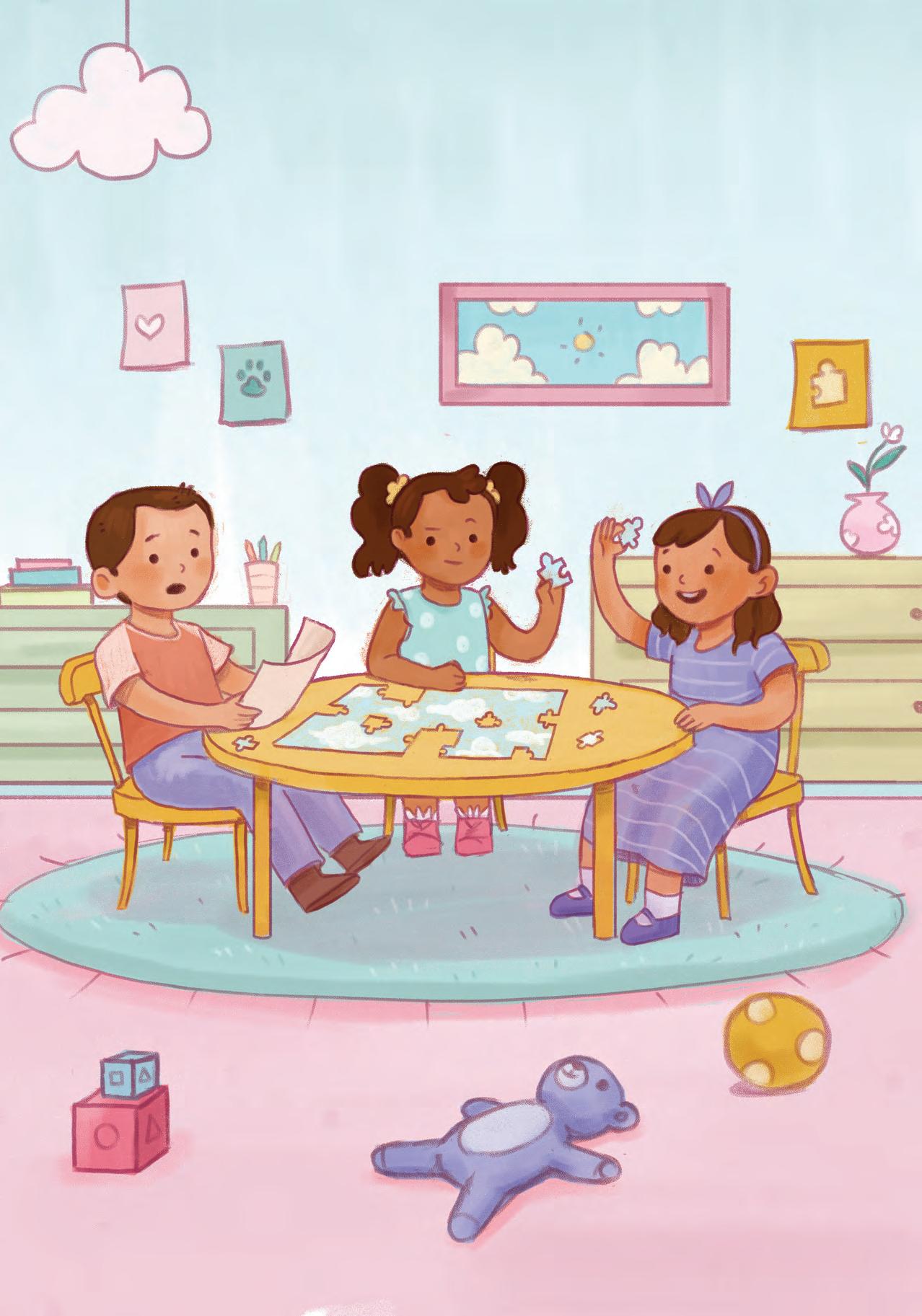
All the kids clapped when Atul took a deep breath and blew out all the candles on the birthday cake! “Happy Birthday! Happy Birthday!” his friends chanted.

Adi stepped forward. “Now, do you want a birthday present?”
“Yes, of course,” laughed Atul.
“Haha! You will have to solve a few riddles for that. Zeenat, read the first one,” said Adi.
“Pull me out, and there you’ll see, Steel or silver pieces placed in me.
Pointed, sharp, round, or blunt
They are tools to eat with.
What am I?”
“Ah, it is the cutlery drawer!” Atul called out excitedly and ran to the cupboard. He pulled out the drawer, thinking he would find his present. His face fell. “Another riddle!”

“I have four legs, and I can be slanting or straight.
My basic job is to support some weight.
What am I?”
Atul looked around. “It’s a chair: It has four legs. It can have a slanting back or a straight one, and it does support our weight when we sit on it!”
He started picking up the cushions on the chairs one by one. Oh, dear! There it was, another riddle!
“I am always comfortable and large in most cases, Soft above and hard at the bases. But be careful; there might be some dust to be seen!
What am I?”

“The sofa!” yelled Atul. “Of course, it’s comfortable and large and gets dusty too.” He dropped to his knees and looked under the sofa. There it was a beautifully wrapped flat box! He pulled it out and quickly unwrapped it. He was stunned. It was a computer game, the latest! His friends cheered and laughed, “Happy Birthday, Atul! We hope you liked the present!”
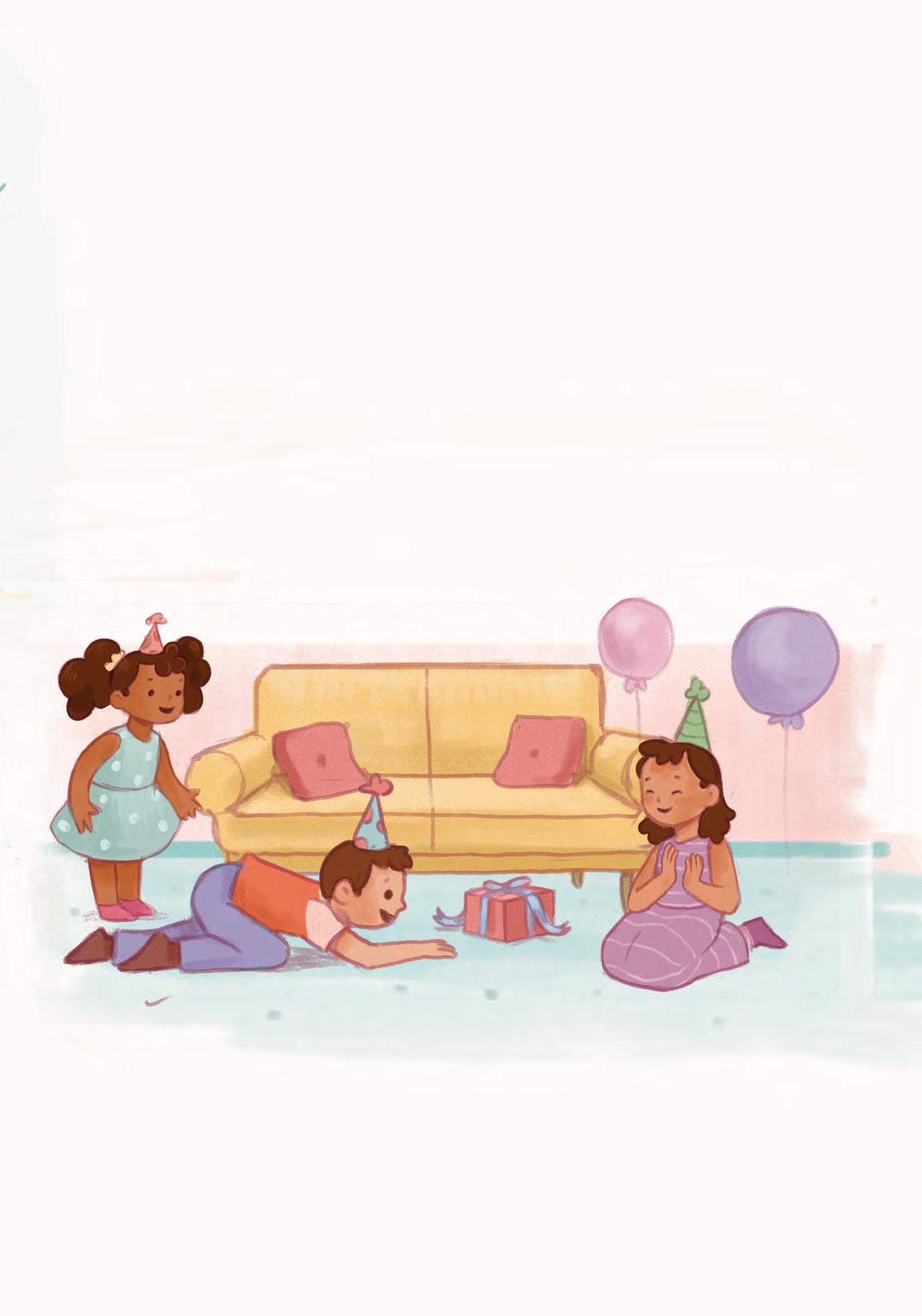
blunt (bluhnt): without a sharp edge or point chanted (chaan.tuhd): sang or shouted the same words many times cutlery (kuht.luh.ree): knives, forks, and spoons used for eating food stunned (stuhnd): very surprised or shocked


Listen to the riddles. Repeat them aloud. Guess the answers.
1
I fill the room with colour on your birthday. If I am let loose, I will fly away. I am a…
I am not a bird, but I can fly. Children say bye-bye when they see me in the sky. I am an…
2 6 5

3 4 4
I can close big doors with my strong arms. You need a key to open me fast. I am a…
I have two hands that show the time. You can find my face on your favourite wall. I am a…
I am a piece of jewellery worn around the neck. Gold or silver, I always glitter! I am a…

Listen to Alisha’s riddle about what she likes to collect. Then say it aloud.


Share your favourite riddle. Speak with expressions.

Match the riddle with the correct animal picture.
I am an animal with a long trunk. And I am too big to be in your house. Who am I?
My fur is white, and I love to hop. When I see a carrot, I don’t stop. Who am I?
I live on trees with falling leaves. You will find me always near the nuts. Who am I?

My name starts with the letter ‘Z’. I have stripes that make me look pretty. Who am I?



The final show!
Ask a Riddle
Write a small riddle. Ask your parents and friends to solve it!


Choose any ONE object to write a riddle on.

3
Write: Write a short riddle for the object you chose. Request an elder to help you with difficult words.


I am .
(tell what the object looks like)
People use me to .
(tell what it is used for)
Who am I?
I am a/an .
(tell the object’s name)
Practise: Ask the riddle to your family members. Say the riddle with a lot of expressions!




4
Present: Ask your riddle to your classmates. Ask them to guess the answer.
Say only the first three lines of the riddle. Let some of your friends guess the answer.
Finally, tell the correct answer.
Rate each presentation!
Write your friend’s name Write your friend’s name
Write your friend’s name

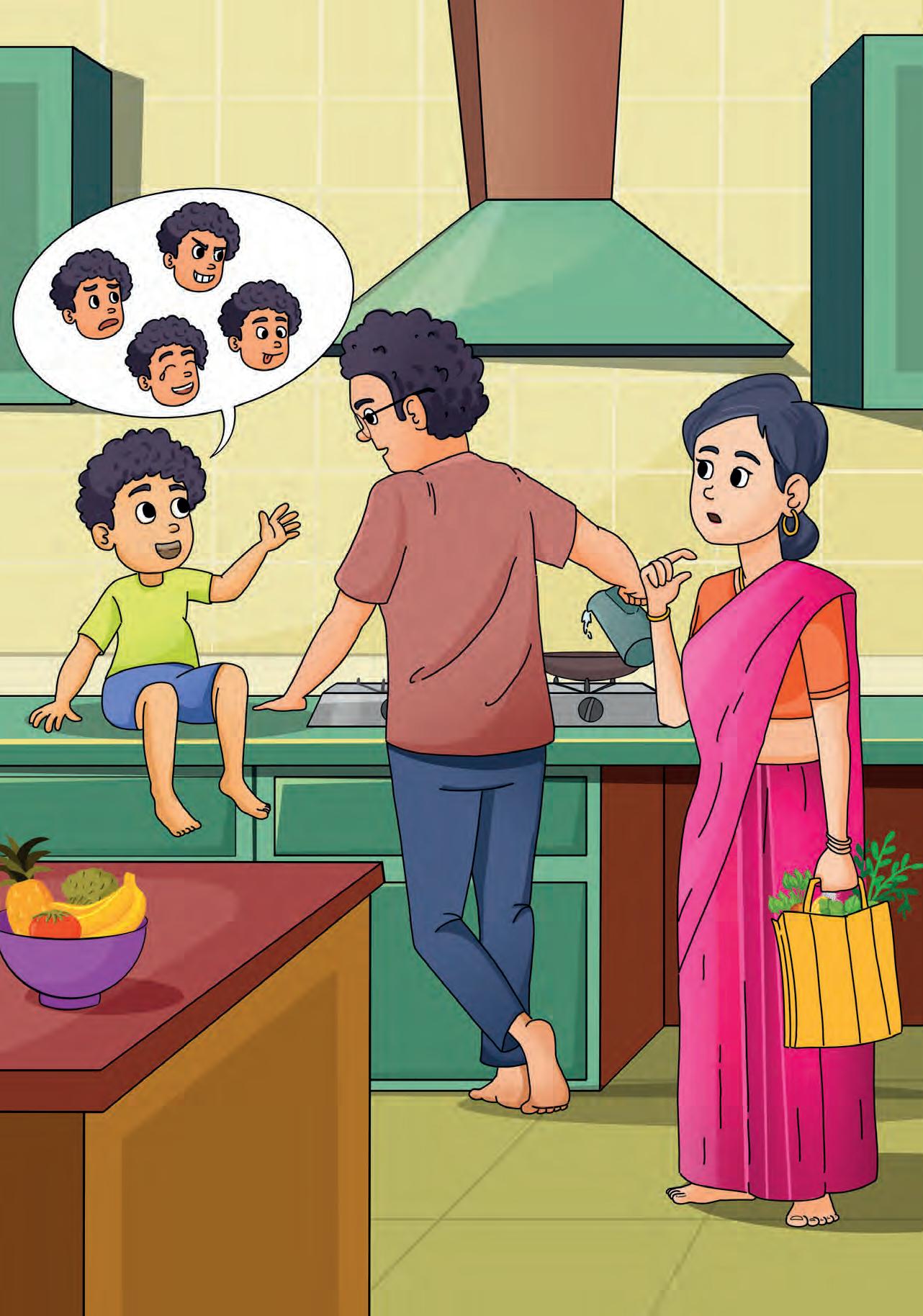
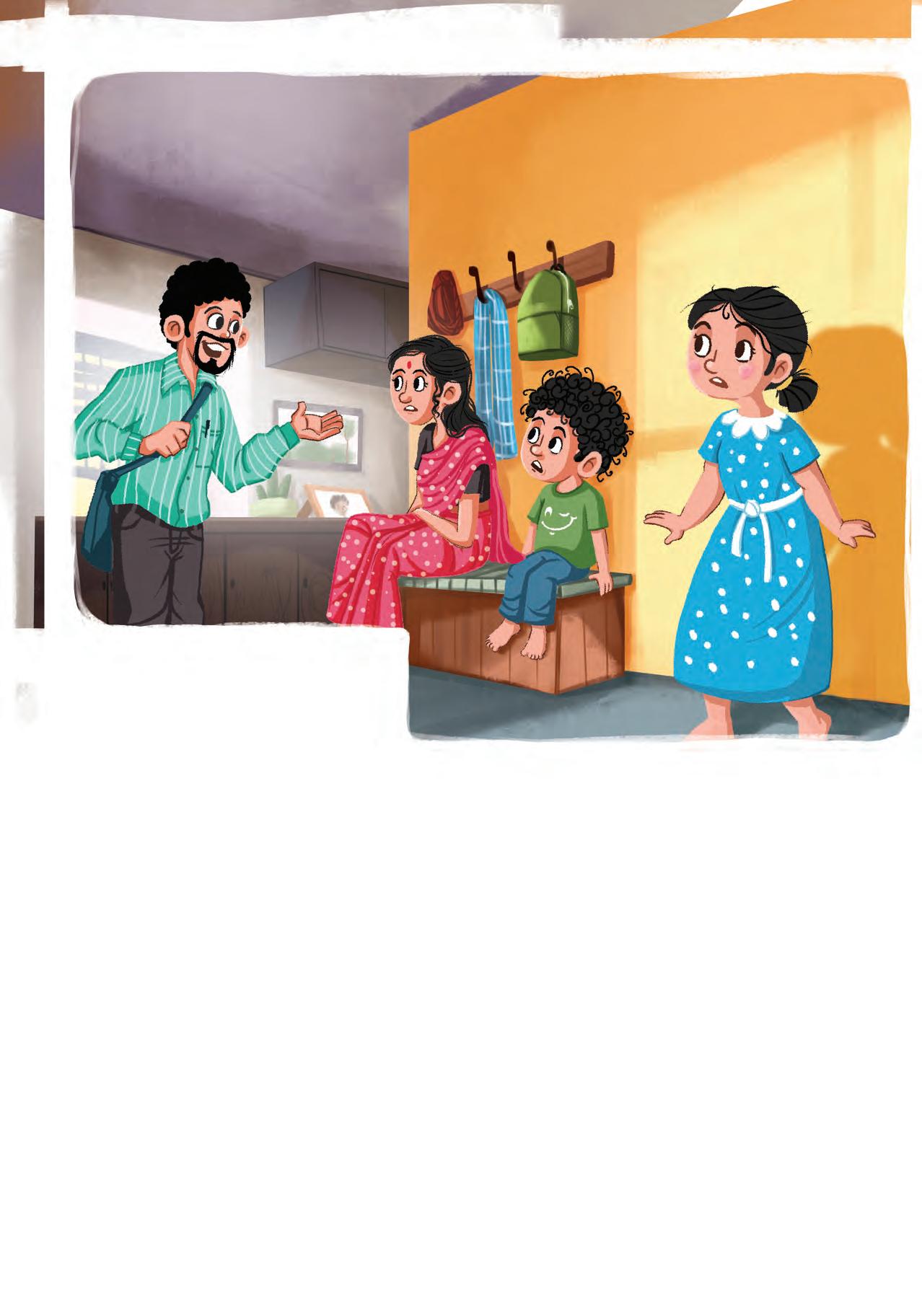


Boost your speaking!

The news of the transfer made everyone in the family feel differently. Discuss how everyone is feeling. But first, read aloud the given ‘feeling words’ with the teacher
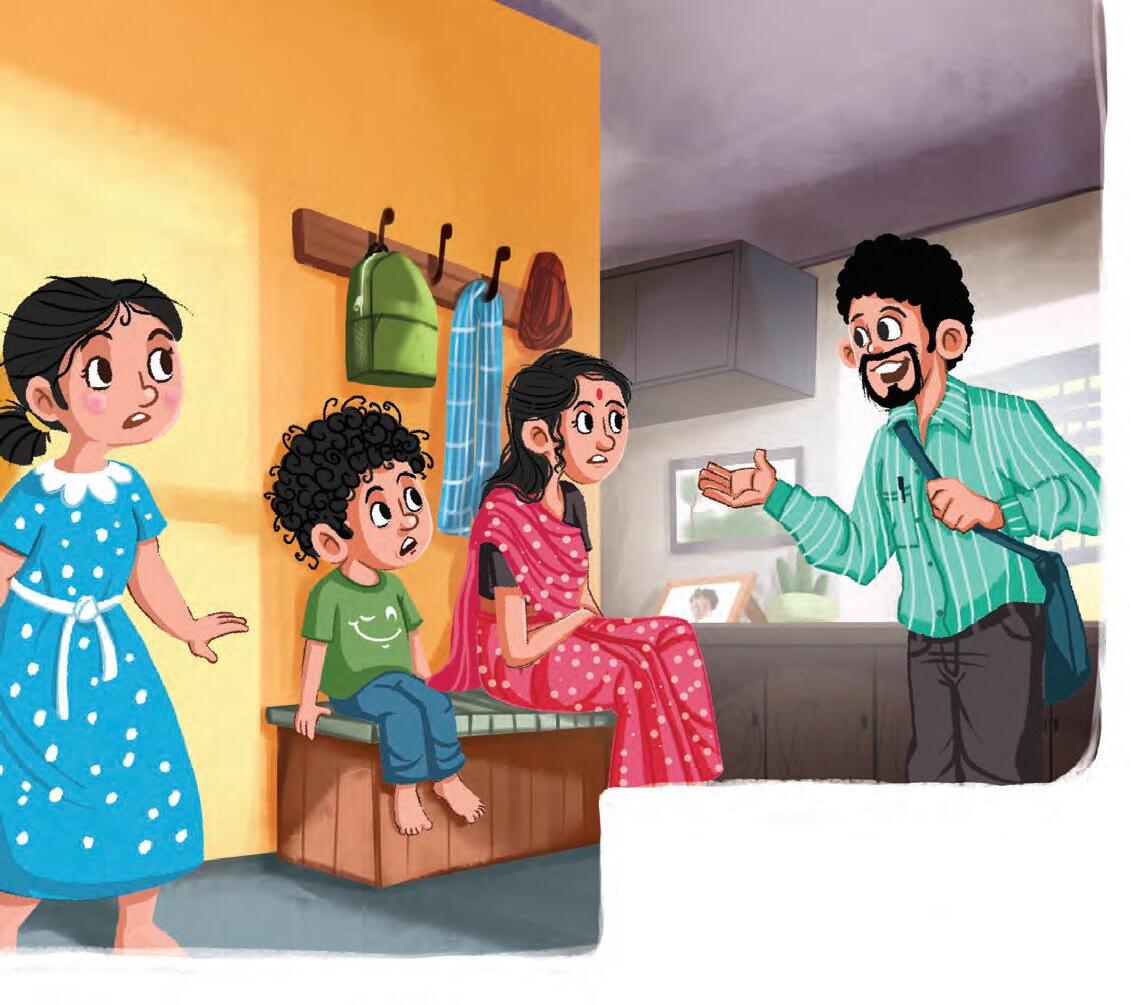
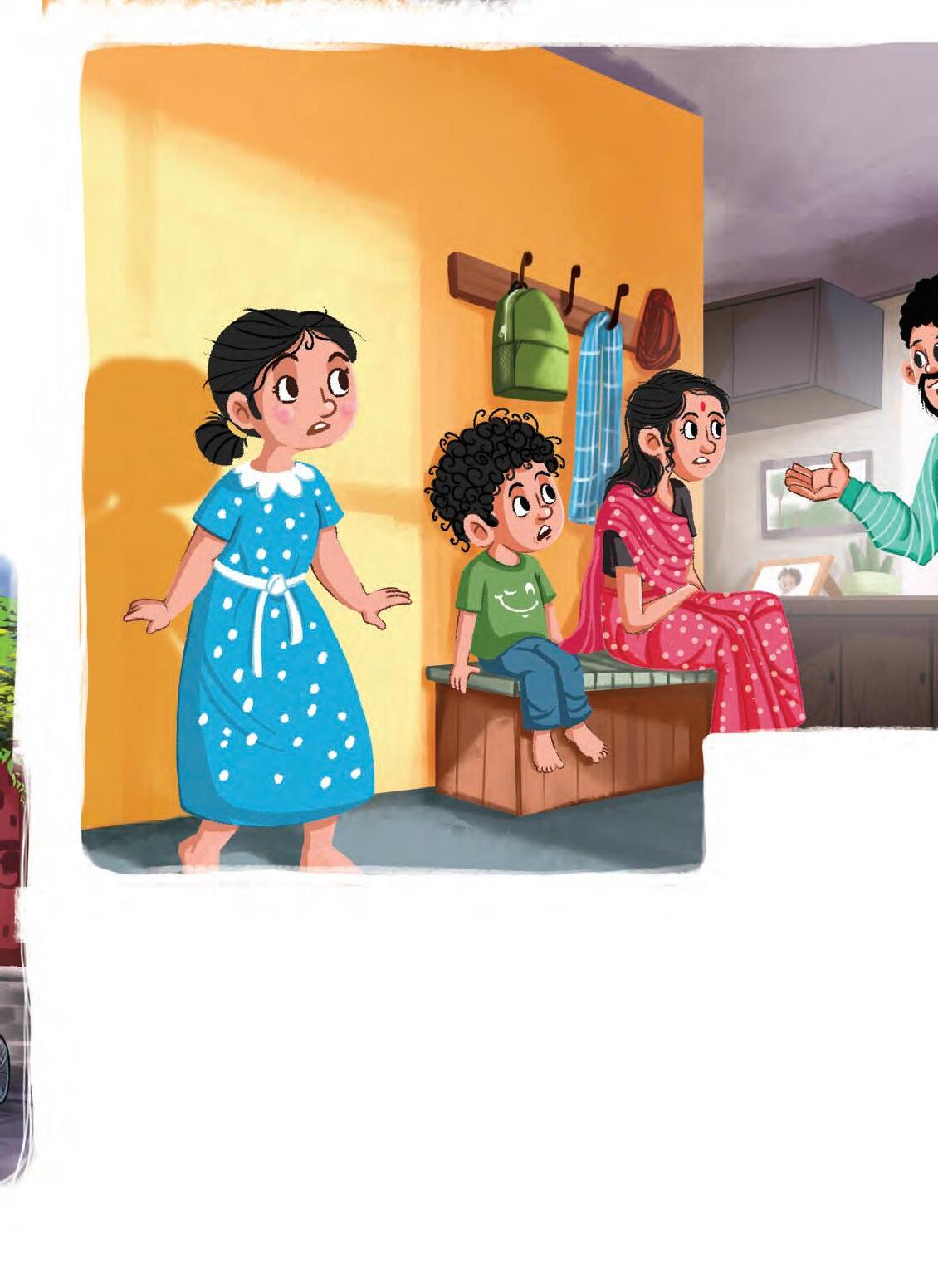
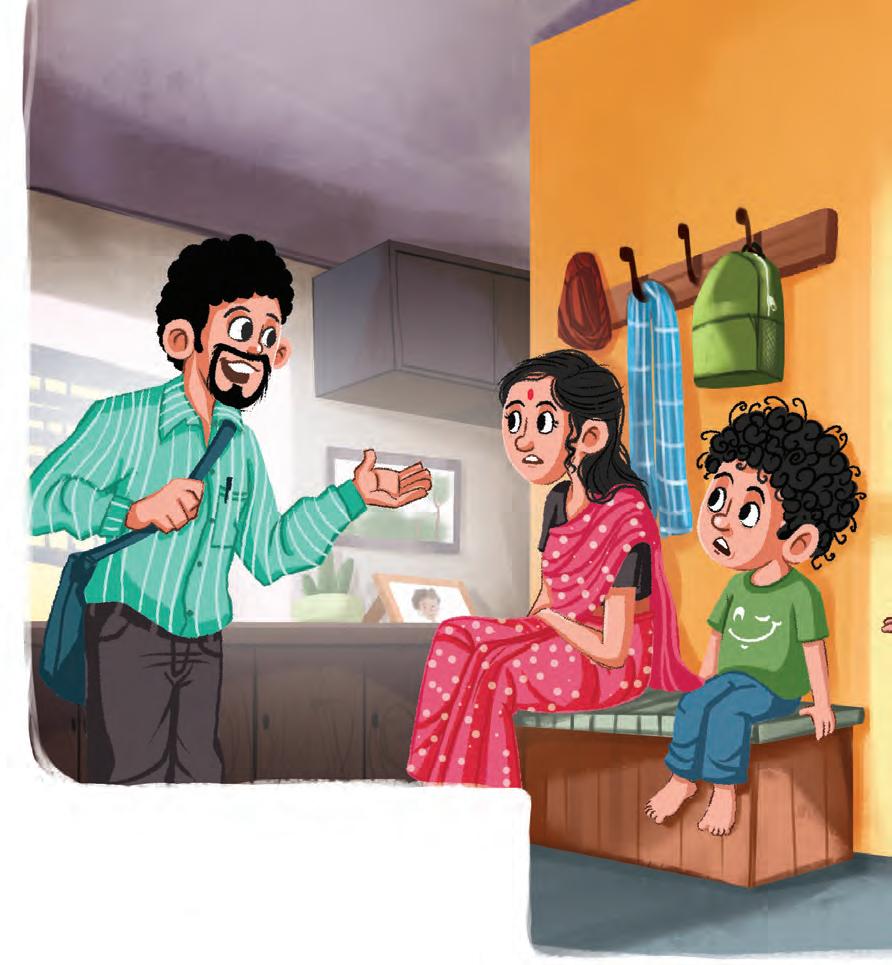

unhappy




Raj takes care of the animals around him. He got an award for kindness. Listen to him talk. Then record it.
Who is your best friend? Share why you like her/him so much.









Speak confidently. Say each line with right expression. Listen carefully when your friends share.






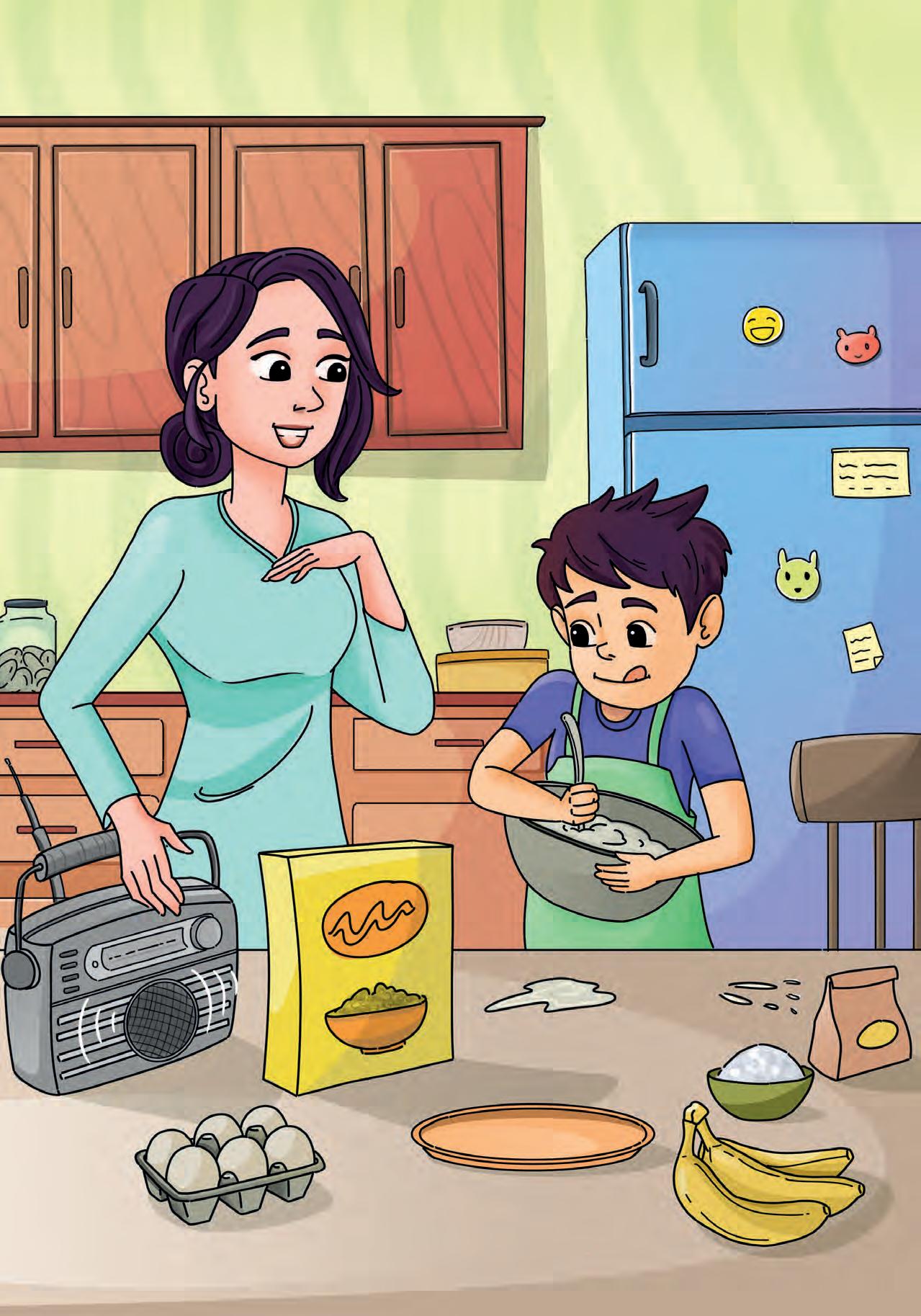
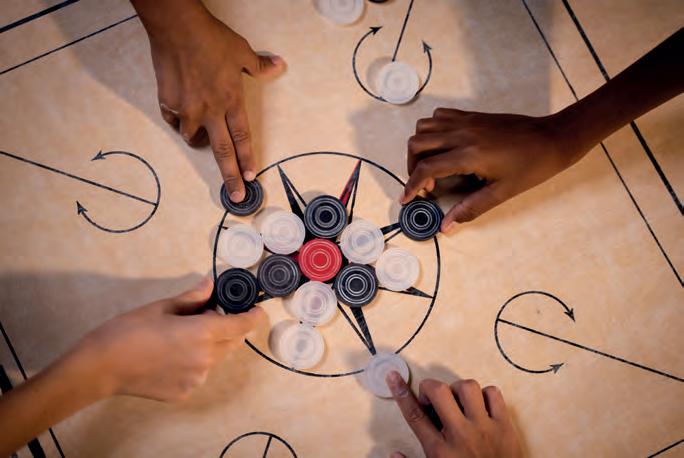
While cleaning his room, Golu found an old carom board behind the cupboard. He went to his brother’s room in excitement, “I found our old carom board! Let’s play!”
His brother Ravi laughed, “Where did you find this? Did you find the pieces too?”
Golu started setting up the carom board. “Yes, I found everything! I will beat you easily!”
Ravi smiled at Golu’s confidence. “Okay, let’s play! Let’s see who beats whom.”

Golu picked up the pink piece and started aiming at the rest of the pieces.
“That’s not the striker; that’s the queen!” laughed Ravi.
“Is that so? It looked different. I thought it was the striker,” said Golu.
“Let me tell you how to play?” asked Ravi. Golu agreed.
“There are nine white pieces, nine black pieces, and one pink piece. We need to first arrange them on the board like this,” instructed Ravi.
Golu helped to place the pieces on the board. “So now I just strike as many pieces as I can, right?”
Ravi responded patiently. “No, Golu. You need to choose either black or white pieces. You can only score with your pieces. Use the striker to strike your pieces. They have to fall into one of the four nets.”
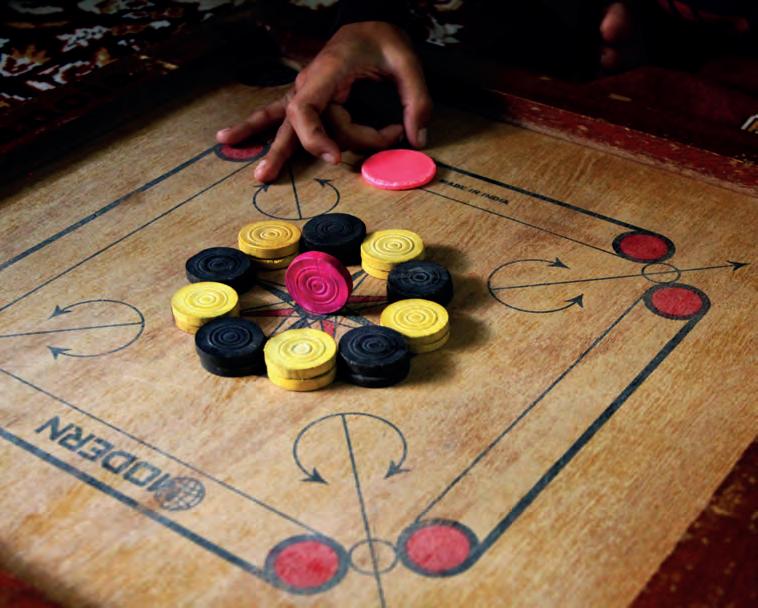

“How much do I score if I put one of my pieces in the net?” asked Golu. “Twenty points,” said Ravi.
“What about the pink one?” asked Golu.
“That’s the queen. If you strike that one, you get 50 points.”
“And now that I’ve explained the rules, I get to strike first!” said Ravi.
“Wow! That was a good strike. My turn to play now – and STRIKE!” shouted Golu.
“Hahaha! Try shouting less and focus on winning the queen!”
Boost your speaking!

Do what your teacher says.
Step 1: Fold a square piece of paper to make a triangle.

Step 2: Fold the triangle to make a smaller triangle.
Step 3: Take the right and the left points and bring them up, away from the top point.


Step 4: Fold the bottom point up a little.
Step 5: Flip the cat over to the other side. Draw the face of the cat.
In the end, tell any ONE thing about your cat!
Rohit is making jaljeera. Listen to how he makes it. Repeat the steps.



Tell us in 2–3 steps how you pack your school bag.

Look at the picture. Follow the instructions.




Draw a hat on the girl’s head.
Circle the kitten’s tail.
Draw a glass of milk on the table.





Write the steps of washing your hands. Practise saying them aloud at home. Finally, tell your classmates how to wash hands.

Practise: Give the instructions to your family members. Speak loudly and clearly.


Present: Time to guide your friends! Tell them how to wash hands!

Do actions with each step.
Rate each presentation!
Write your friend’s name
Write your friend’s name
Write your friend’s name










Akhil and Akshay wonder how the story will end. What do you think will happen next? Share your thoughts.
Ending 1
I think the fox will run away because…
the family members will wake up
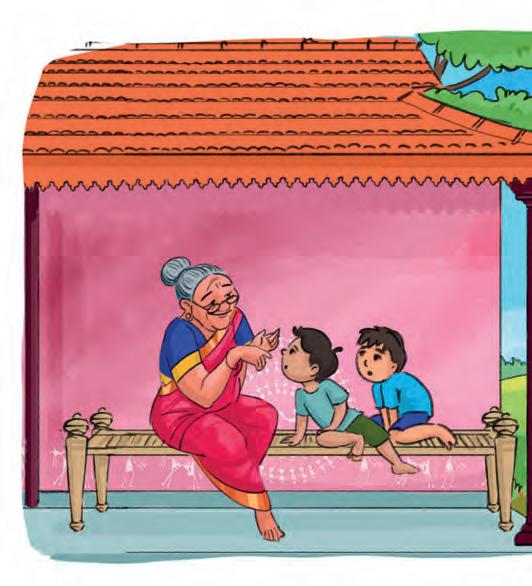
the guard dogs will start barking
Ending 2
I think the fox will get caught because…
the sheep will fight with the fox and defeat him
the family will wake up and stop the fox
Ending 3
I think the fox will start living with the family because…
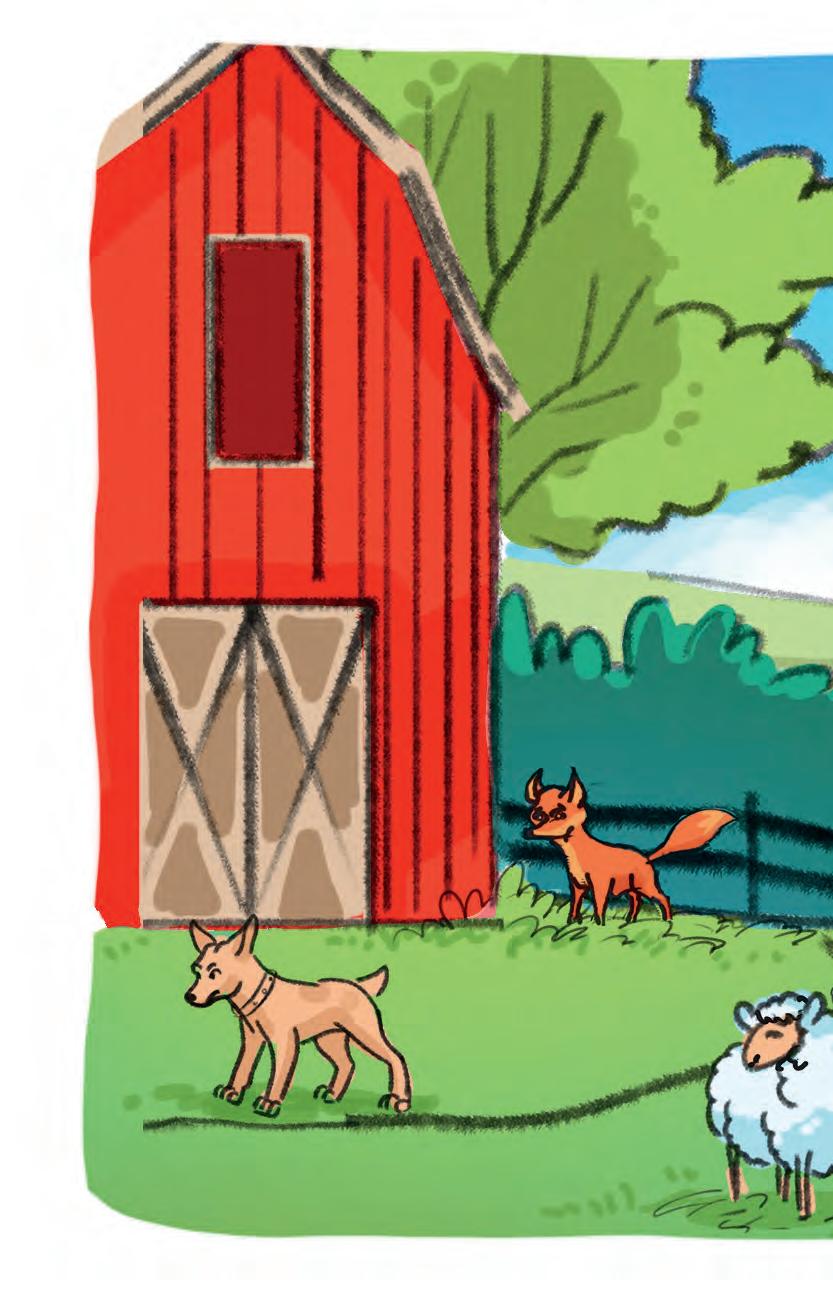
he becomes friends with the family and the sheep
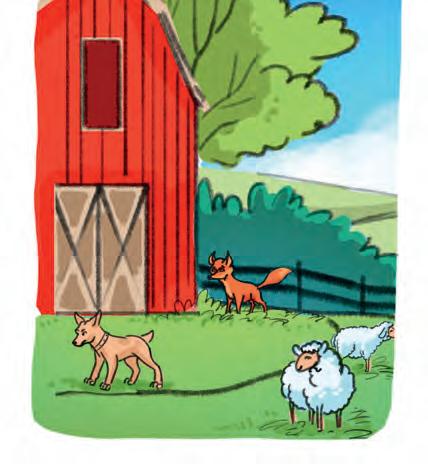
the family will love him they will give him food
Speak in complete sentences.
Speak loudly.
You can add your own thoughts as well.
Practise at home!
Vibha is going to her grandparents’ house. Listen to her and record it.




What will you do if you see a lizard in the classroom?
Share your thoughts.


Hello, everyone!
I chose picture number .
In this picture, .
(write what is happening)

I think this will happen next: .
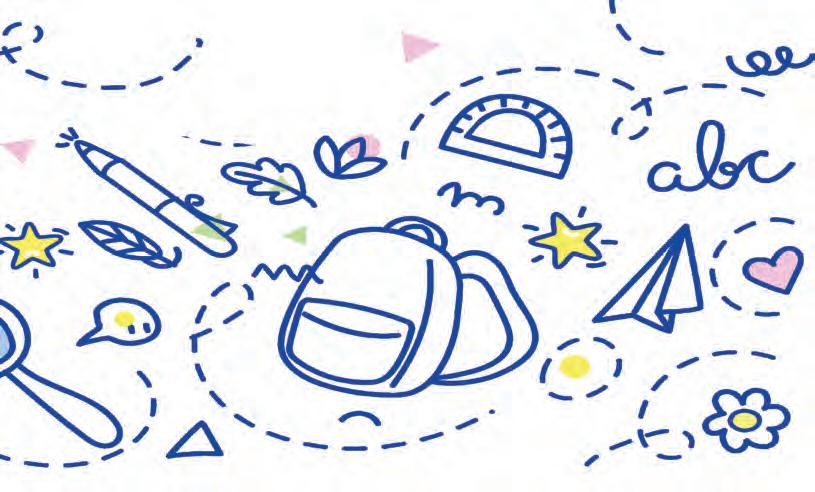
Speak loudly. You can read from the book. Listen carefully to your friends.




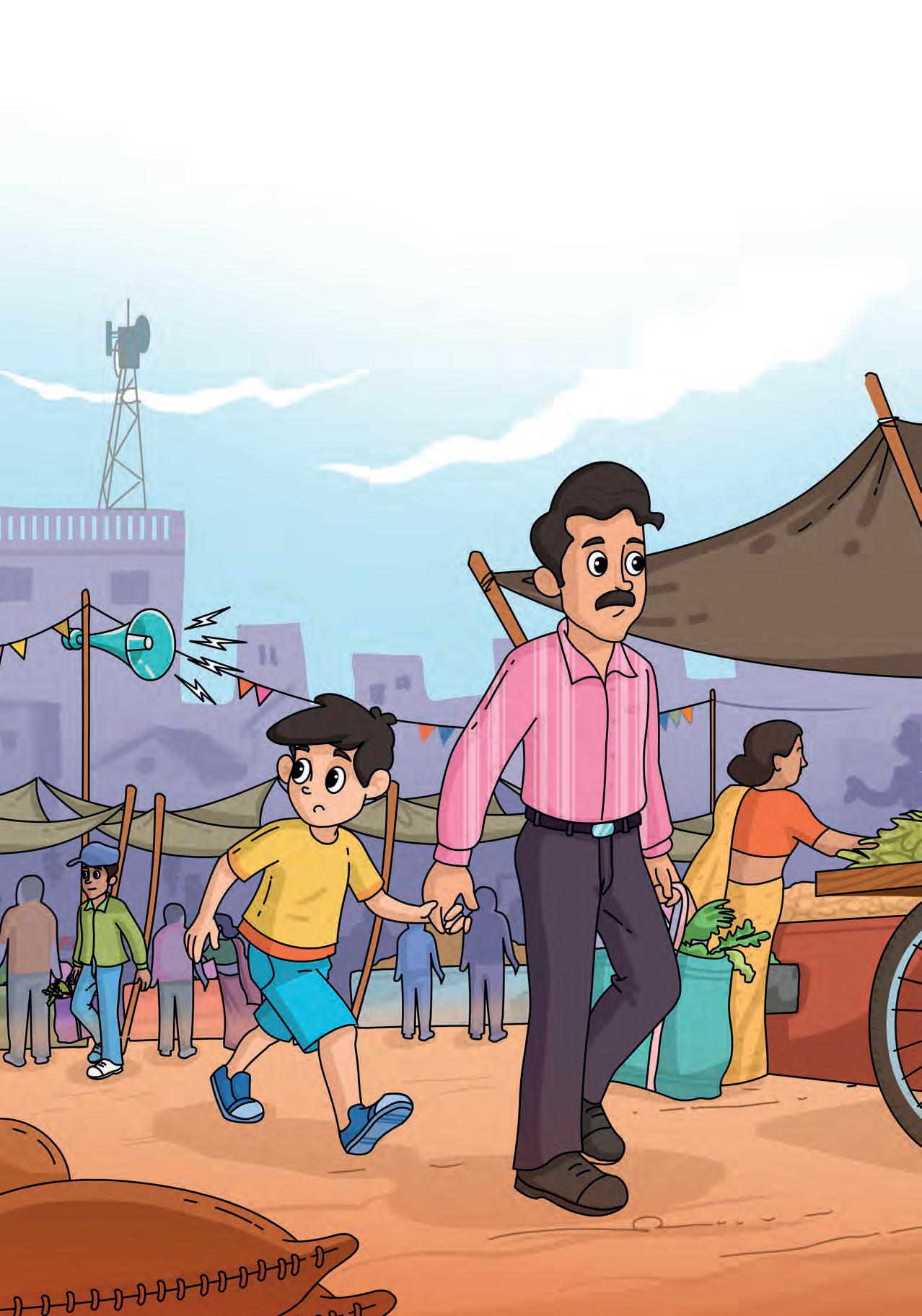
“Come on! Hurry up! We will be late!” shouts Anusha from the door. Her bags are already packed. She is so excited to go to Jaipur that she is the first one to get ready.
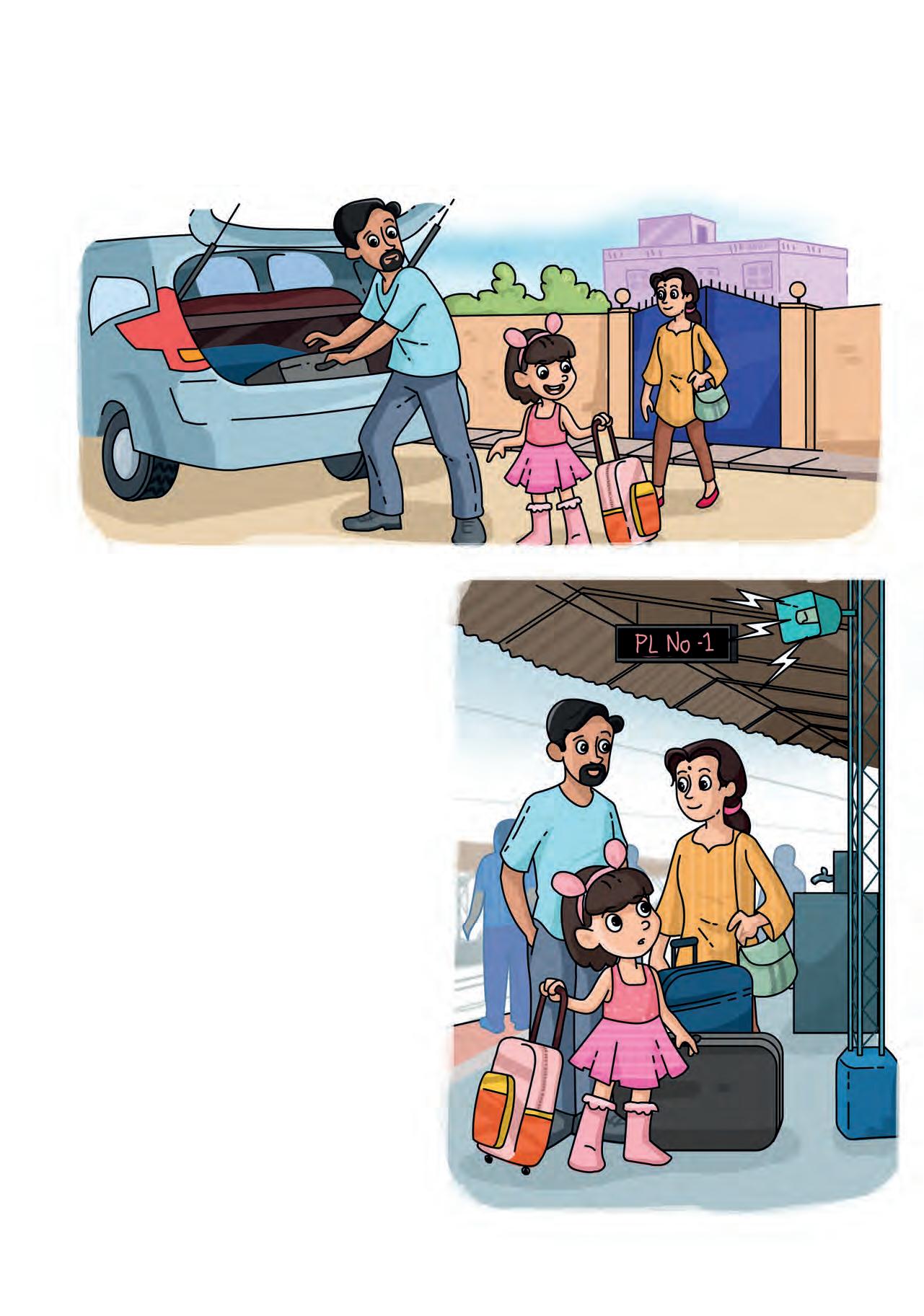
“Yes! Yes! Sorry, we are late. Let’s go,” says Mom. They are finally ready to leave.
They arrive at the New Delhi Railway Station, but it is so crowded! How will they ever catch the train on time? Anusha wonders which platform their train will arrive at. Just then, she hears an announcement. “14646 Shalimar Express from Delhi to Jaipur is going to arrive at platform 6.”
“That’s our train. Let’s move to platform 6,” Dad says. Platform 6 is at the other end of the station. They have to hurry! All three of them move quickly towards the platform. That’s when they hear another announcement. “14646 Shalimar

Express from Delhi to Jaipur is going to arrive at platform 6 in five minutes. Passengers are requested to board the train.”
“Oh no! Are we going to miss our train?” Anusha hurries as she holds onto her mom’s hand. The way to the platform is filled with people. It is impossible to reach platform 6 in five minutes!
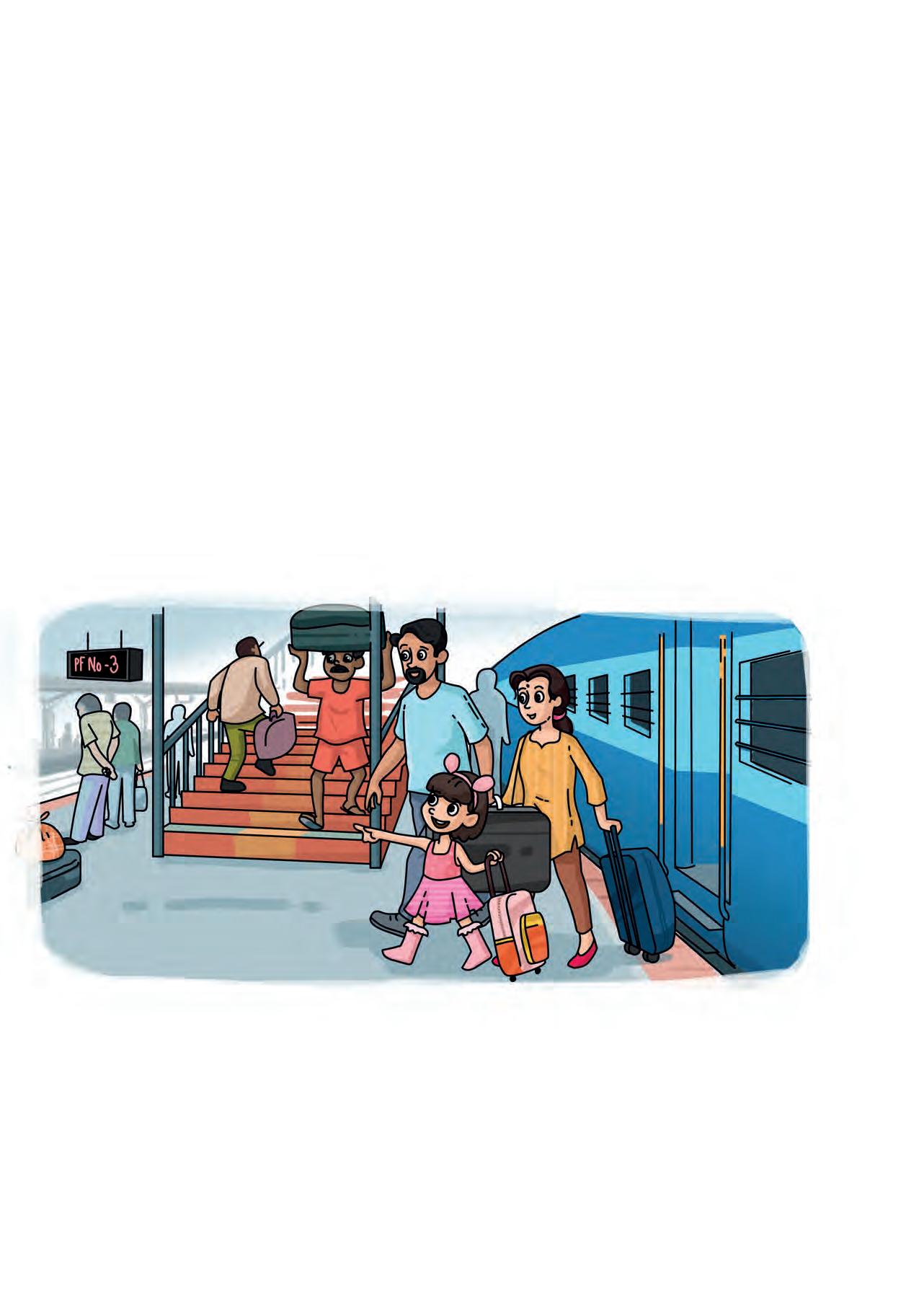
“We must hurry and get there as fast as we can!” says mom.
Just then, Anusha hears another announcement, “Attention, please. 04706 Jaipur Super Special has been delayed by one hour.” “Oh! The train is delayed! Papa, that announcement is for us, right?”
“No, Anusha. That’s a different train. Our train number is 14646. Now, let’s hurry up!” says Dad.
The three of them rush towards the platform, but they have only reached platform 3 by now. Anusha still hopes they make it on time.
That’s when she hears the best announcement ever! “Attention, please. The platform for train no. 14646 Shalimar Express from Delhi to Jaipur has been changed. The train will now arrive at platform 3.”
“Yes!” Anusha cries in excitement. “We are already on platform 3!” She is so happy that they made it on time. Phew! What a morning it has been!
announcement (uh·nouns·muhnt): information given over a loudspeaker at a public place crowded (krawd·uhd): filled with too many people or things passengers (pa·suhn·juhz): people travelling in a vehicle, other than the driver platform (plat·fawm): the raised area next to railway tracks, where people wait for a train


Boost your speaking!





Say aloud the announcements on the left with correct expression. Answer the questions your teacher asks.


A“14646 Shalimar Express from Delhi to Jaipur is going to arrive at platform 6.”
The train number…
The train’s name…
The train is going from…
The train will arrive at platform…

B“Attention, please. 04706 Jaipur Super Special has been delayed by one hour.”


C“Attention, please. The platform for train no.
14646 Shalimar Express from Delhi to Jaipur has been changed. The train will now arrive at platform 3.”


The train number…
The train’s name…
The train has been delayed by…
The train number…


The train’s name…
The train is going from…
The train will arrive at…



Listen to the pilot’s announcement. Then, record it with expression.
You have to make an announcement in your class about a drawing competition. Tell your class about the date and topic of the competition.


Circle any FOUR differences between the two pictures.


The final show!

Prepare an announcement for an event in your school. Practise saying it aloud. Finally, announce it in the classroom.






Tick (ü) the event you want to make the announcement for. 1

Sports Competition

Art Competition
School Picnic
Fancy Dress Competition

Write: Complete the announcement.

Attention, please!
Our school is organising a/an on .
(the event you chose)
(day of the event)
This is for grades to .
(who can participate)
You need to bring , , and .
(list of things needed for the event)



For any other details, please talk to Ma’am/Sir.
(a teacher’s name)
Thank you!
3
Practise: Now, practise saying the announcement in front of your family.


4
Present: In the class, make the announcement in front of your friends.
Speak loudly and clearly.
Speak with expression.
You can use a pencil/pen/pencil box as the mike.
Star Scale
Rate each presentation!
Write your friend’s name
Write your friend’s name
Write your friend’s name
kind, brave, intelligent
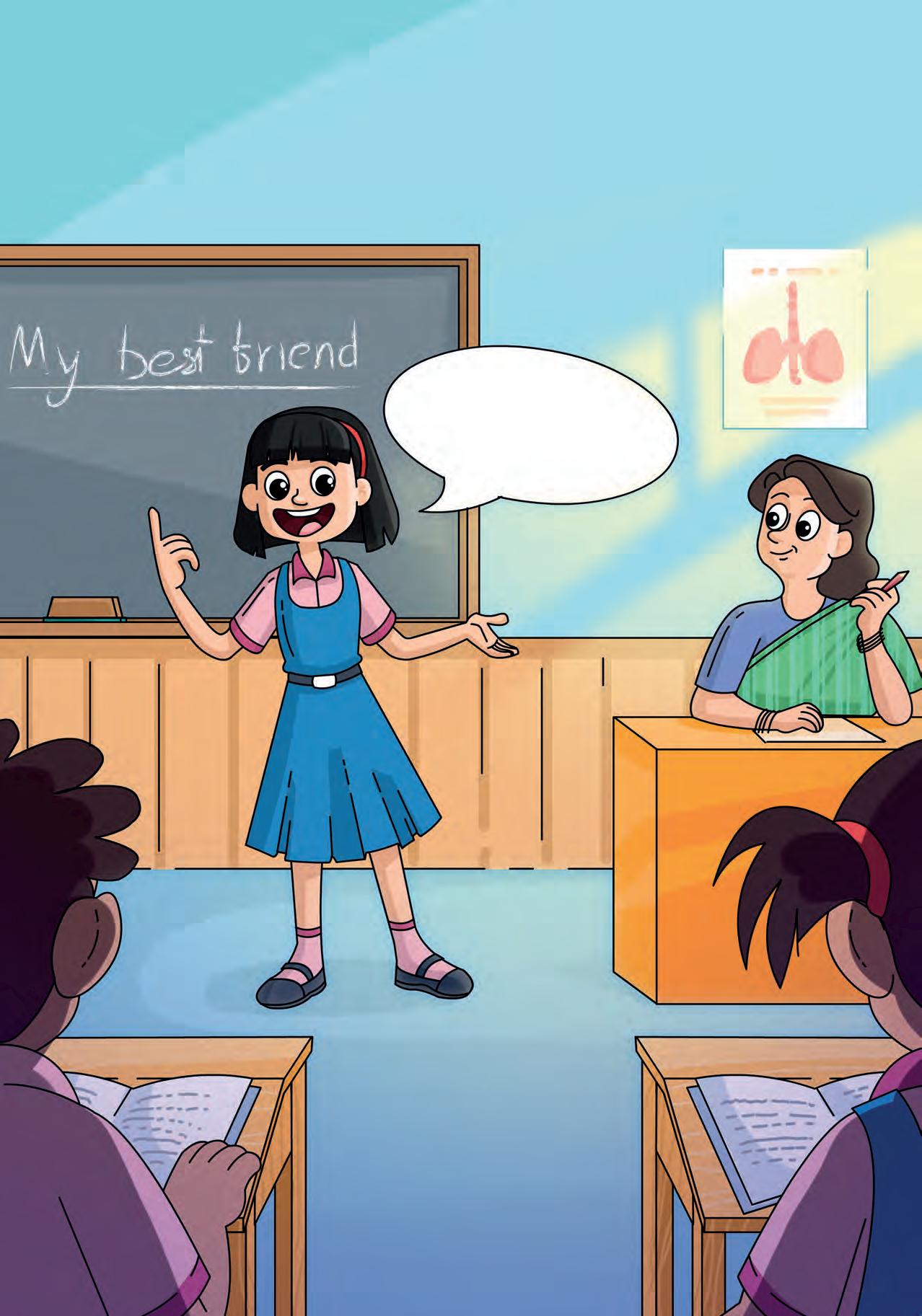
Two weeks ago, I was travelling on a bus with my father. The bus was not quite full. Among others, there was an elderly woman in the second row. There was also a young man wearing spectacles next to me. He seemed very friendly.
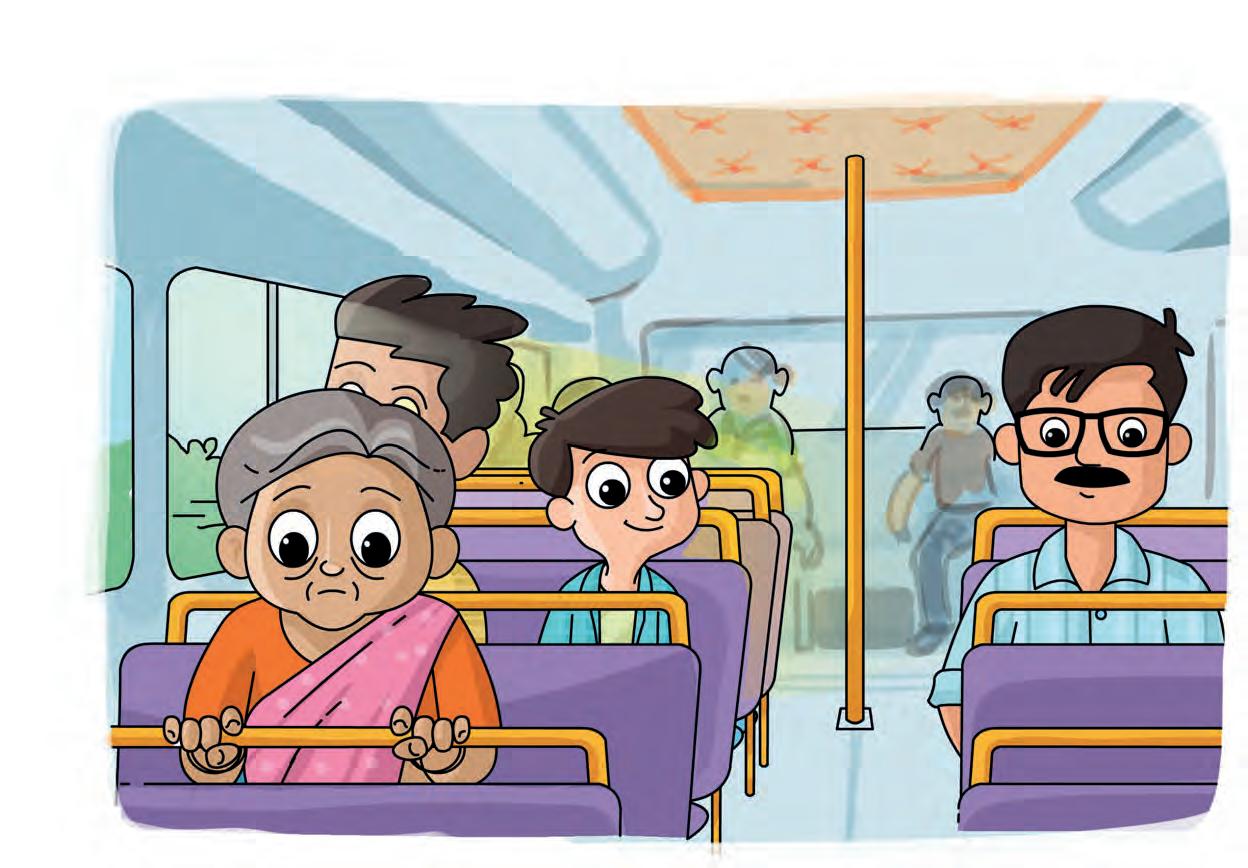


Suddenly, I heard the elderly woman cry out. She was very pale. She started sweating and breathing heavily. I got scared. What was happening? My father and I started to get up, but we didn’t know what to do. The young man next to me was very quick to act. He jumped up and asked the woman. “What is it, ma’am?”
She was clearly in pain. The young man thought for a moment, and

then he ran to the bus conductor. “Sir,” he said, “the lady in the second row has suddenly fallen ill. Where is the nearest stop?”
“Hasampura. About ten minutes.”
Everyone started to panic. The young man, however, was calm. He took out his mobile phone and dialled the nearest hospital. “Emergencies? I am on the bus from Jaipur to Phulera. An elderly passenger is not well. She might have a heart problem. Please send an ambulance to meet us at the Hasampura bus stop. We are ten minutes away. My name is Divyanshu Gaur. Thanks.”
The next day, my father pointed to the newspaper, “Isn’t this the helpful man from yesterday?” I looked at the newspaper article. There was a photograph of him. Below, it was written “A young caring man with quick thinking saves elderly woman’s life. Calls an ambulance ahead of time by staying calm.”

I would like to be like that young man when I grow up. He was friendly, kind, and caring. He remained calm and acted quickly and effectively. He is a very good role model!
emergencies (ih·mur·juhn·seez): the part of the hospital that deals with patients who need urgent care pale (payl): looking ill panic (pan·ik): to suddenly feel a lot of fear



Boost your speaking!



You have just read about Divyanshu Gaur! Now, say TWO sentences about him. You can use words from the help boxes.

Speak in complete sentences.
Example: Divyanshu Gaur is a nice and caring man. He wears spectacles.
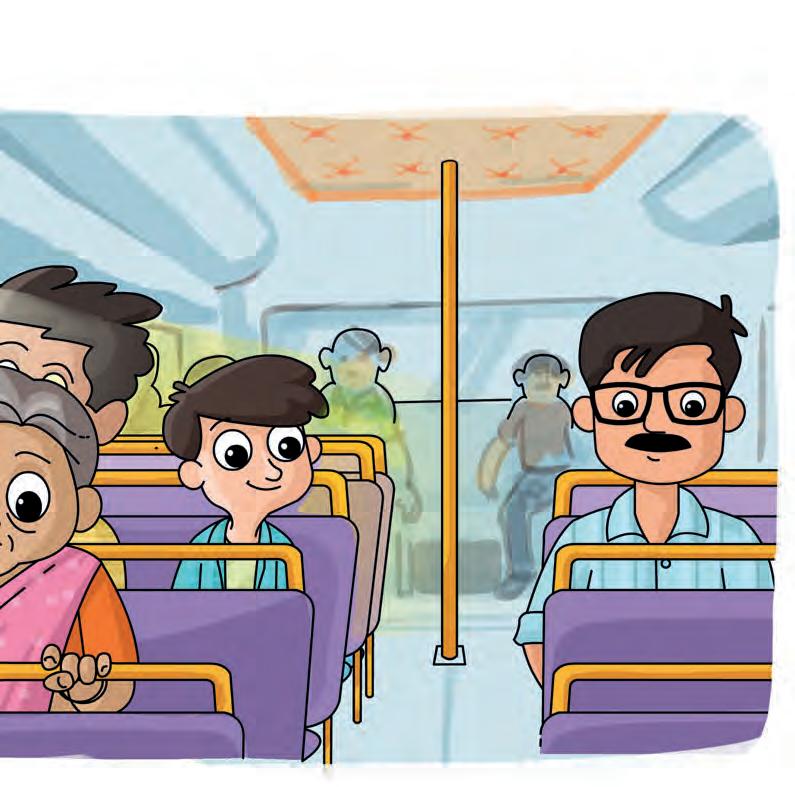
Aakash has made a new friend. Listen about him. Then, record it.
Tell us TWO things about yourself. Talk about your likes, dislikes and hobbies.












You can ask your friend to stand with you, if they are present in the class.

Speak loudly and clearly. You can read from the book.





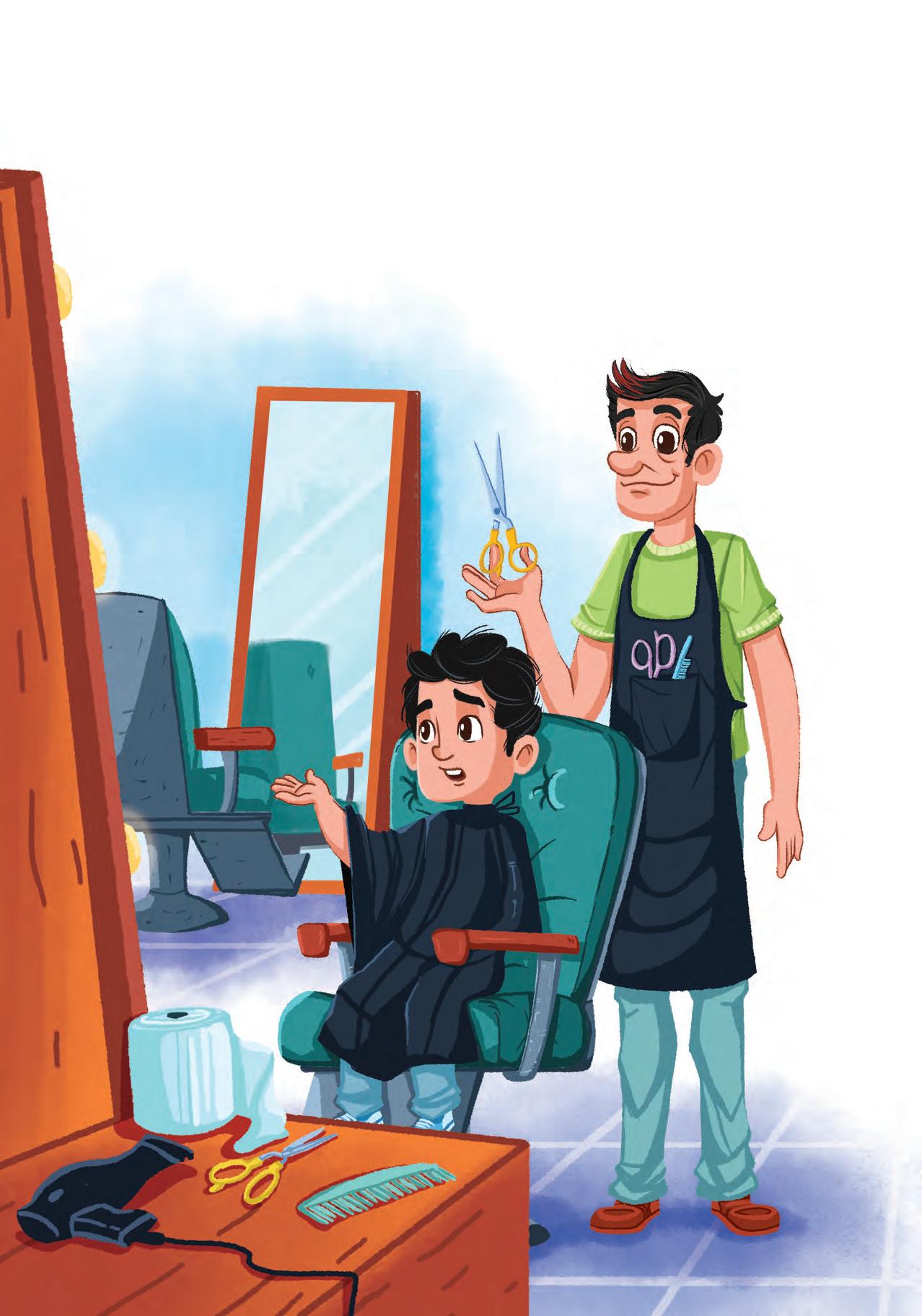
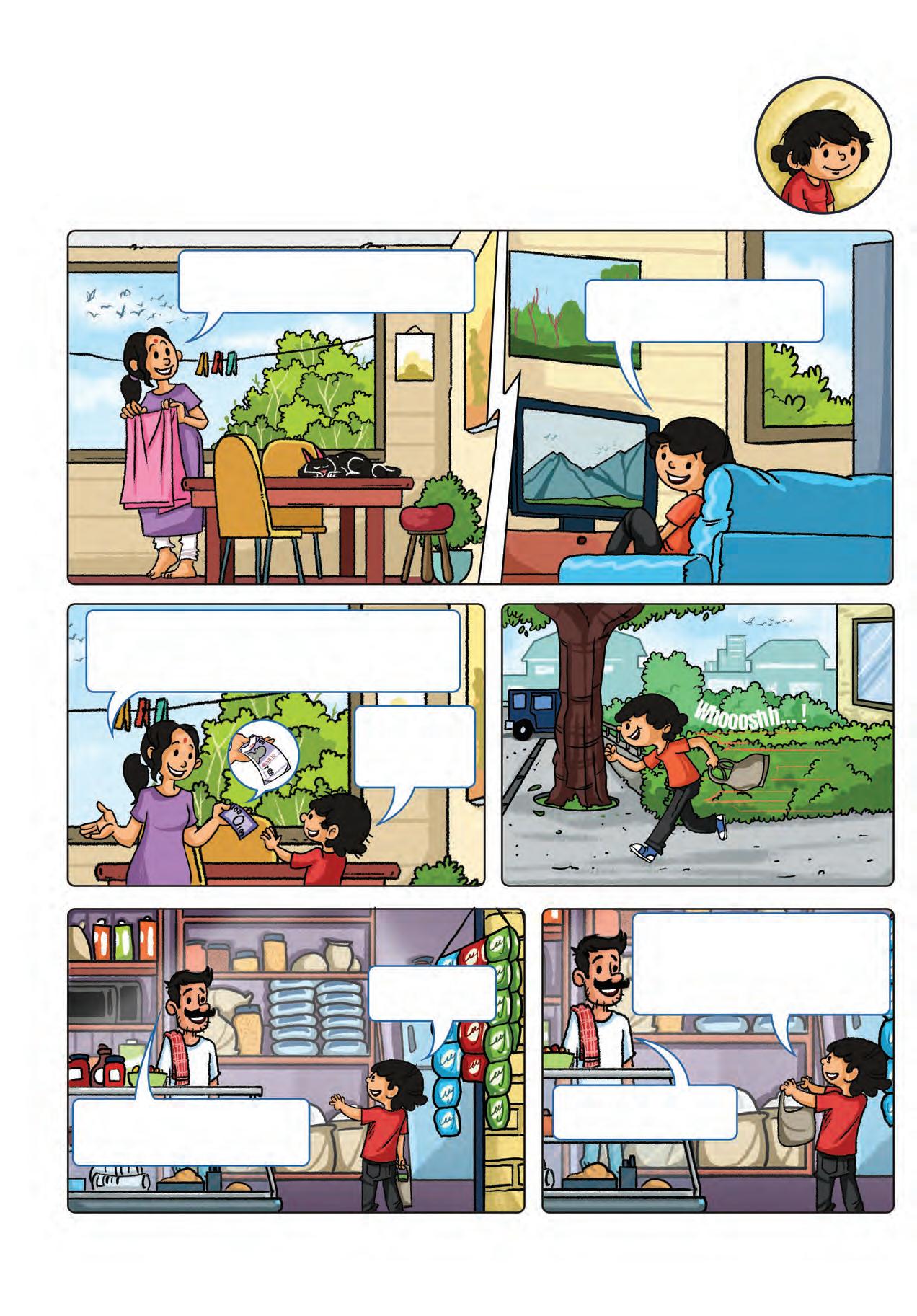

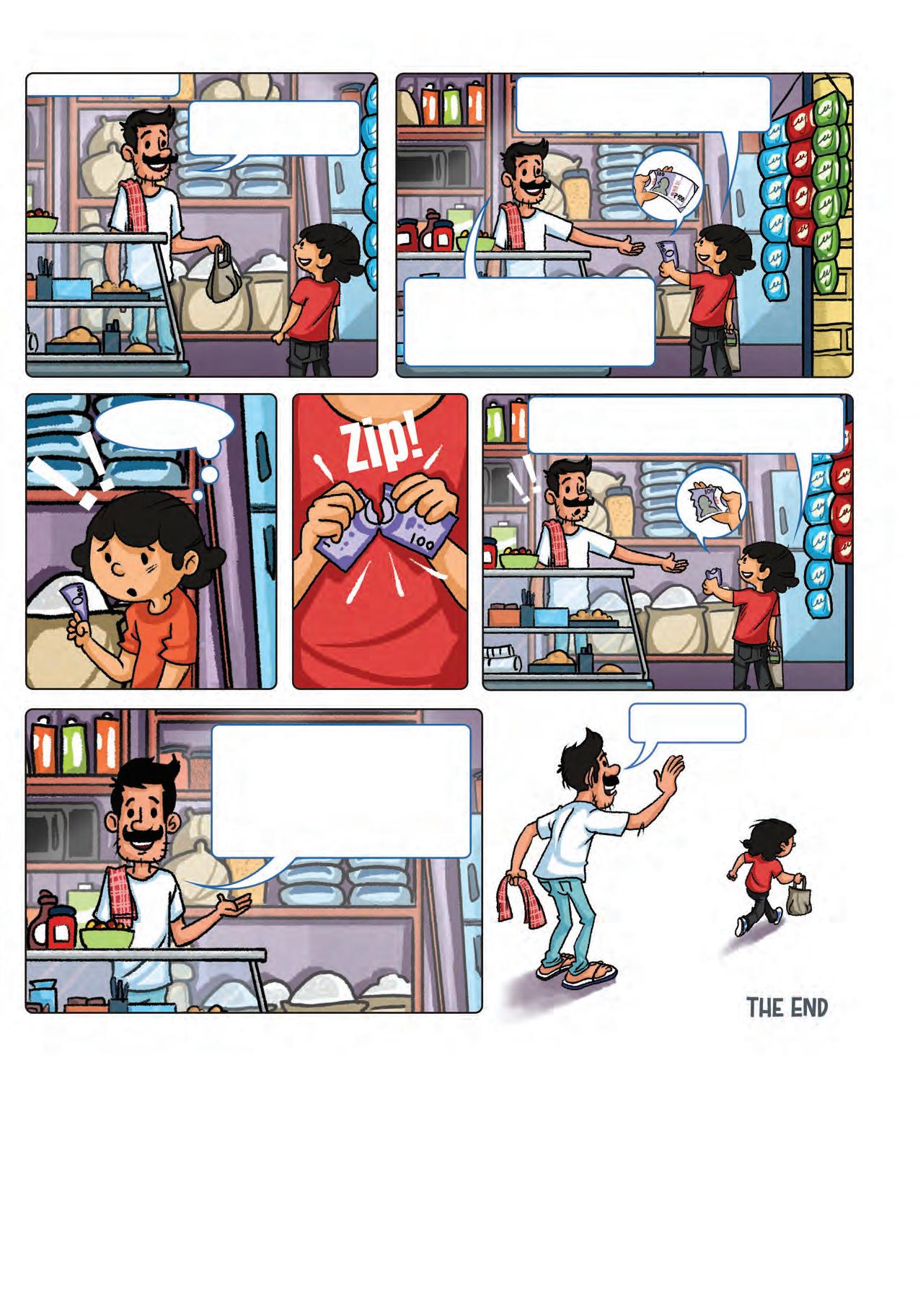

Boost your speaking!

You are at a shop to buy something. Say the dialogue with the teacher, who will act as the shopkeeper.




Hello!
52
Hello, good morning!
Do you have ?
Good morning! an eraser












a pack of salt
a pencil a pack of biscuits
Sure, here you go.
How much does it cost?
What is the price?
Sure. Here it is.
The price is
You can use the help words.
You can also create your own sentences.


You need a new water bottle. Call your mother to talk about it.



Your cousins have come to your house after a very long time. What questions will you ask them? Share any TWO questions.








2
Practise: Practise each dialogue with a family member. Speak with expression.


3

Present: Now, say the dialogues with the teacher in class.
Say the dialogues with feelings.
Do some actions when you speak.


You can read from the book while speaking.

Rate each presentation!



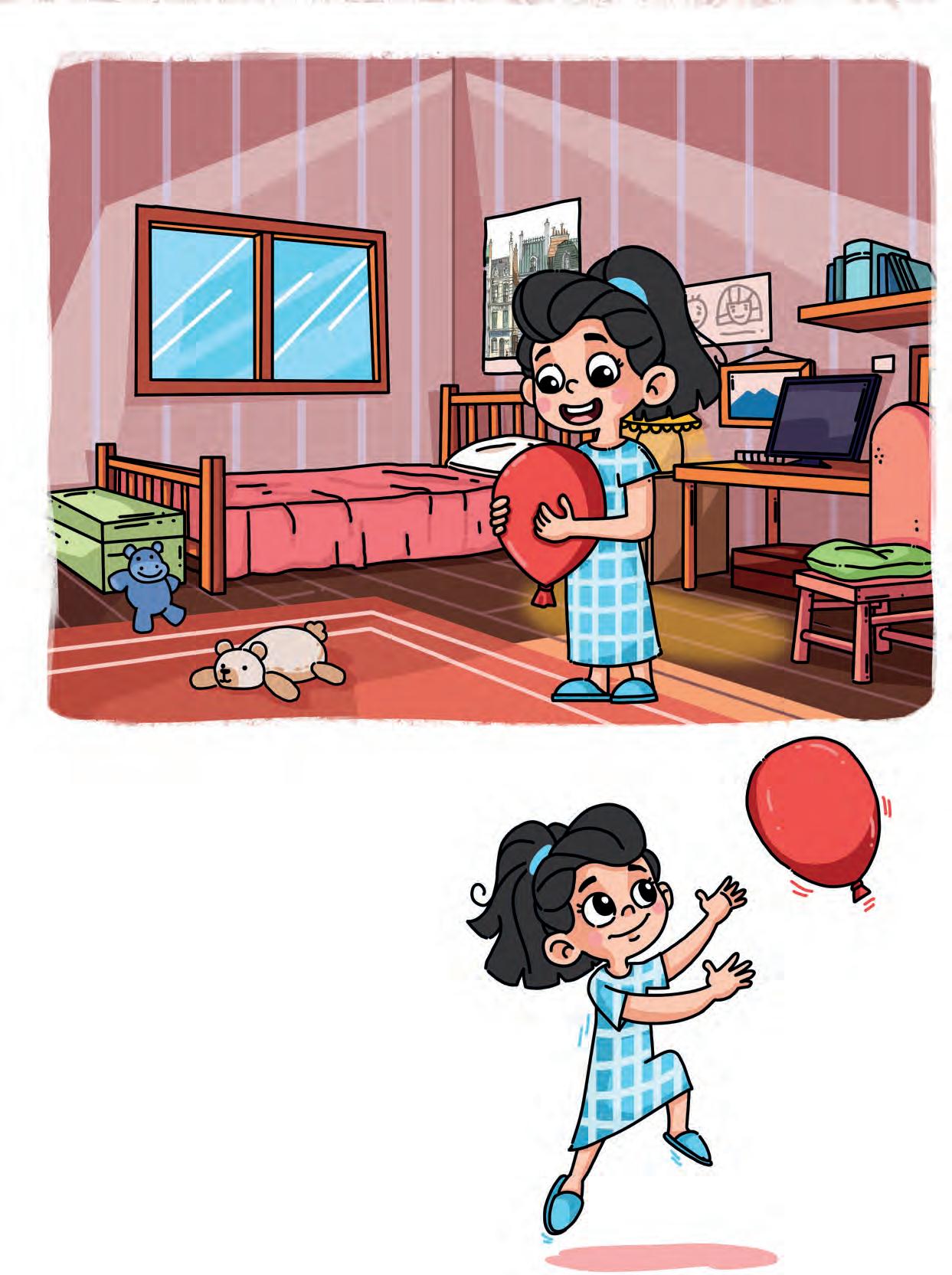
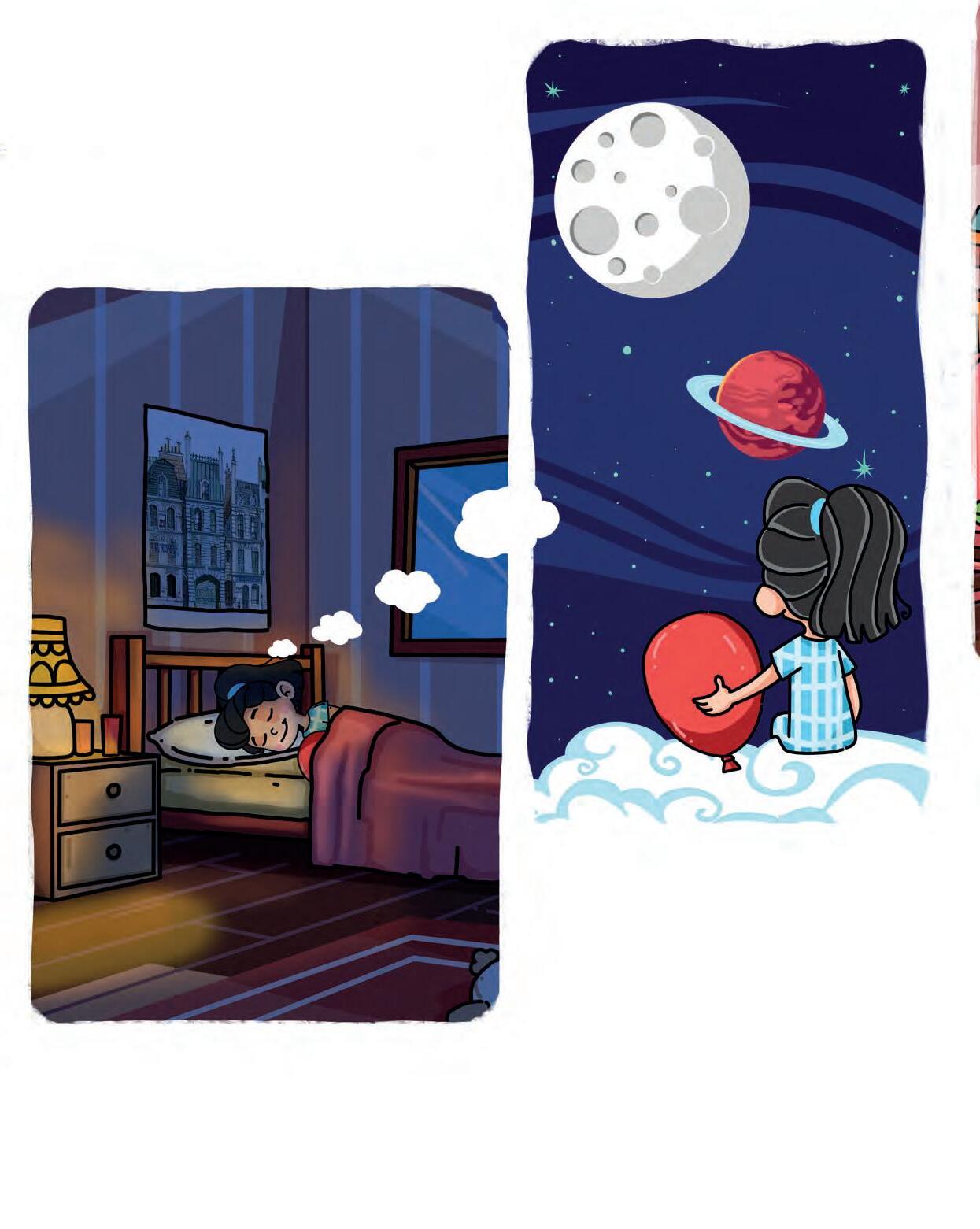



Close your eyes and think for a minute! What did you like the most about the poem? Share with the class.

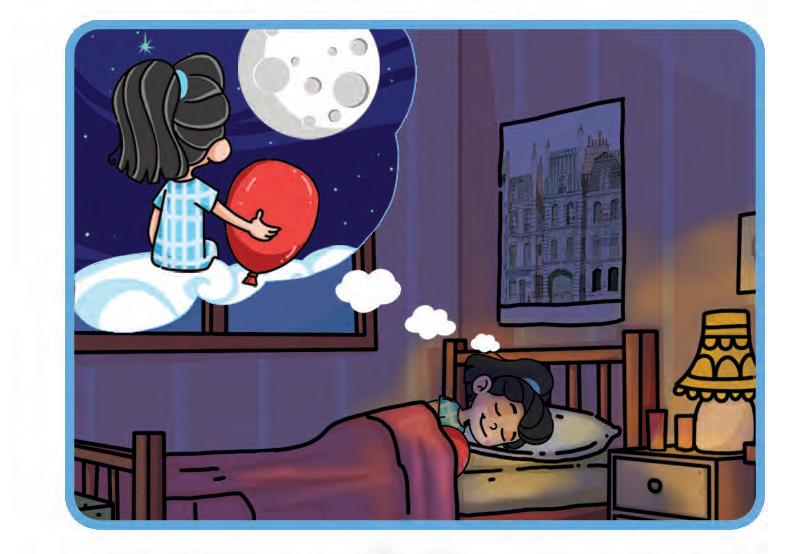
soar high and high play together
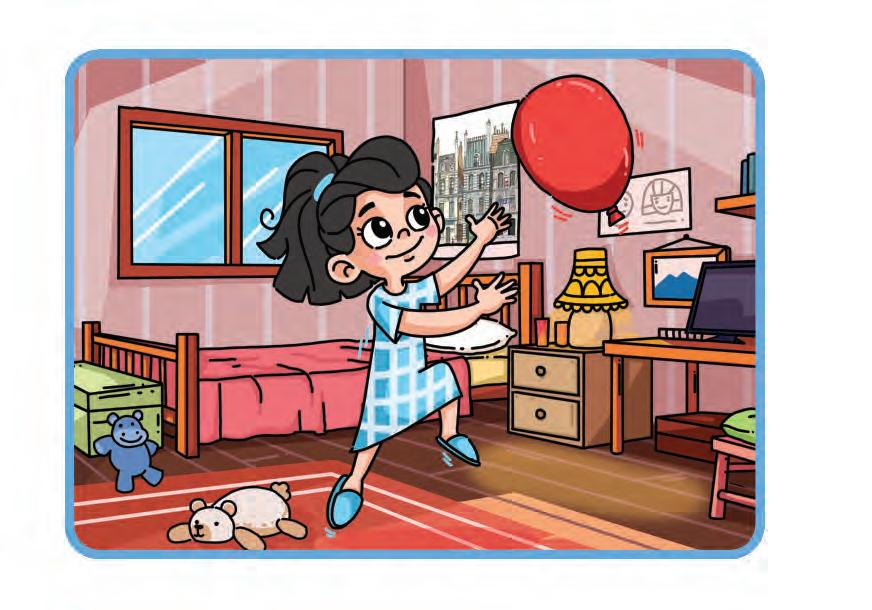




Listen to Baani’s funny dream as she travels with her Balloon to meet the Sun! Then read it aloud with expression and record it.
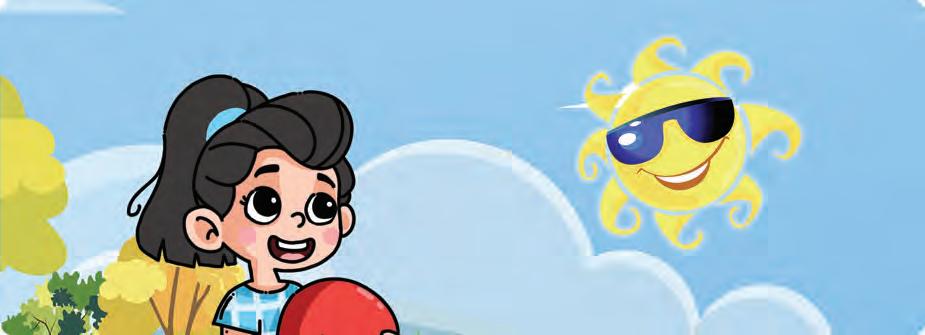
Have you ever wondered what it would be like on the moon? What do you think you will find on the moon, if you go there?







Rate each presentation! Write your friend’s name Write your friend’s name Write your friend’s name


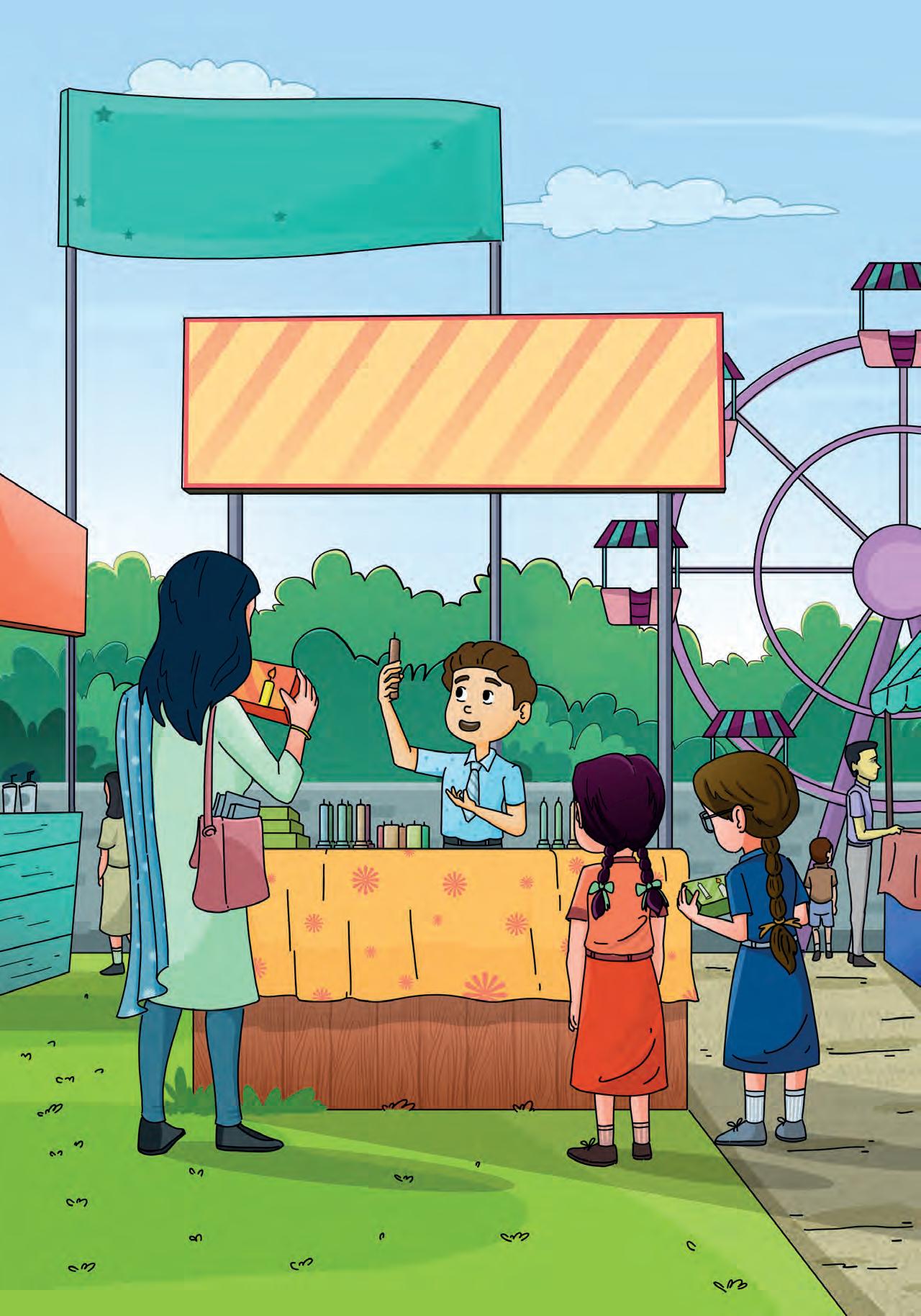


advertisement (ad·ver·tahyz·muhnt): a notice, picture or film that tells people about a product or service backpack (bak·pak): a bag you carry on your back dirtproof (durt·proof): able to prevent dirt build-up features (fee·chers): special qualities of something


Boost your speaking!

Read the catchy slogans of ‘Tech Trolley’. Write another slogan for it. Share your slogan with the class.
A slogan is a phrase or line used in an advertisement to get people’s attention. It can be a short rhyme or a simple catch line.


Examples:
This bag is so cool. Everyone wants to buy it for school!
The best bag to buy, To catch everyone’s eye! Buy the bag of your dreams now!
Now, write your slogan:

Say your slogan in a nice tune. Use hand gestures while presenting.



Shubham is selling candles at the school fair. Listen to his slogan. Then sing it aloud.

You have an ice cream stall at the school fair. Make a slogan to sell your ice cream.

Circle any THREE advertisements that you can spot in the picture. One is done for you.




The final show!
Choose any ONE object and write a few lines to sell it. Practise saying them aloud. Finally, share your lines with the class.
1
Circle the object you want to sell.
milk
clock
colourbox

shoes sunglasses
toy truck
lunch box soap
Write: Complete the advertisement for the object you chose. 2
(object name)

(write a slogan here)
(One special feature)

(draw the product in the box)




The 'Conversations' book follows a unique spiralling approach that systematically builds language skills and enables children to express themselves verbally in real-world situations, thus preparing them for the needs of the 21st century world. Each chapter focuses on building specific and age-appropriate English language competencies by weaving together activities that are contextual, experiential, joyful, and research-based.
• Activity-based Learning: The book offers joyful and experiential activities that build English communication competencies.
• Texts as per NEP 2020 themes: The book has exciting and stimulating texts that pave the way for English communication activities.
• Tech Integration: The book works in sync with the digital world, where various other activities and projects are undertaken. Learner outputs are evaluated through an AI-based speech recognition engine.
• Assessment of Speaking & Listening as per CEFR: The program includes special assessment that allows systematic reporting on growth of English language skills as per the CEFR.

• Teachers’ Manual: The book is complemented by the Teachers’ Manual that enables teachers to conduct each session effectively.
Uolo partners with K-12 schools to provide technology-based learning programs. We believe pedagogy and technology must come together to deliver scalable learning experiences that generate measurable outcomes. Uolo is trusted by over 8,000 schools with more than 3 million learners across India, South East Asia, and the Middle East.